At Iowa's rapidly expanding Big Grove Brewery, the goal isn’t to make money today, but to make people come back tomorrow.
The post Big Grove’s Big Plans: Give Iowa a Try appeared first on CraftBeer.com.
At Iowa's rapidly expanding Big Grove Brewery, the goal isn’t to make money today, but to make people come back tomorrow.
The post Big Grove’s Big Plans: Give Iowa a Try appeared first on CraftBeer.com.
Ice cream soda floated into our collective consciousness 150 years ago. Now, a beery take on this fanciful beverage is winning converts.
The post A Dreamy Pairing: Beer & Ice Cream appeared first on CraftBeer.com.
As someone with a "beer-centric" palate, it is often difficult for me to find cocktails that I enjoy. When I go to a cocktail bar and order something that sounds interesting, the flavors are often overwhelmingly concentrated, and the balance tends to be either super-sweet or super-boozy. The 20-30+% ABV of most cocktails also makes them rough to drink at the same rate you would a beer...
So, I thought it would be interesting to invent a few cocktails inspired by the balance and flavors of some of my favorite beer styles. If you want to drink something that tastes exactly like a beer… drink a beer! These cocktails are “inspired” by the flavors in the style and the overall balance of the style in terms of alcohol-bitterness-sweetness, they aren’t meant to be “ringers” for drinking a given beer. I'm also trying to avoid "uncommon" ingredients... although some of these may take a little searching at a specialty grocery/liquor store or online.
I’m not an experienced bartender or mixologist, if you try one of these let me know what you think and if you have any suggestions!
Gin and Tonic is my standard cocktail order because it isn't too strong or too sweet, and the bitter/herbal notes are something I appreciate. I also find Ramos GIn Fizz to be a fun one, with the added body of an egg white and cream, and more citrus from lemon juice and orange blossom water. In this "Hazy IPA" inspired riff, I swapped out the tonic for aromatic hop water. To replace the malt sweetness and enhance the juicy flavors from the hops I added orange juice. To keep it from being too one-note orange, I added New Zealand Sauvignon Blanc, which contains high concentrations of many of the aromatics produced by Thiolized yeast and found in New Zealand hops. An egg white helps to add haze, foam, and body.
Recipe
In a shaker, combine:
1.5 oz Bombay Dry Gin
1.25 oz Orange Juice
1.25 oz Oyster Bay Sauvignon Blanc
1 Egg White
Dry shake 10 seconds
Pour into a glass, then top-up with:
6 oz Hop Water
6.7 % ABV
Ingredient Notes: The Hop Water you choose is up to you. I've enjoyed the ones from breweries as well as places like Hoplark. You can also make your own with carbonated water and some hop terpenes (I like the ones from Abstrax). Use pasteurized egg white if you are worried about the risk of salmonella. If you don't like orange, try mango or another juice that appeals to you.
Tasting Notes
Smell - Winey tropical-citrus. Slight herbal from the hops and gin. Doesn't read obviously juniper.
Appearance - Very pale, very hazy. Great sticky head.
Taste - Pleasantly sweet. Good balance of the juice and wine, without either dominating. The gin provides some depth, but again not overtly gin-y. The hop water brings herbal complexity without dominating the other ingredients with "hops."
Mouthfeel - Medium-light body, light carbonation.
Drinkability - Light and bright, citrusy.
Changes for Next Time - Certainly could add a few drops of hop terpenes if you want to send it more hoppy. Some hopped bitters could be a nice addition if you like a little more bitterness.
Thanks to Audrey, I've really come to enjoy fortified wines like Port, Sherry, and especially Madeira. It's traditionally made by halting fermentation with an addition of brandy to preserve the sweetness of the wine, then aged at elevated temperatures. The result is a like a concentrated barrel-aged English barleywine, woody, with dried fruit, and pleasant oxidative notes. I added Rye Whiskey to elevate the vanilla notes. Malta is essentially unfermented wort, but tends to have big caramel and malt extract notes from pasteurization. It helps by lowering the alcohol without thinning the cocktail, adding a little carbonation.
Recipe
Combine together:
.5 oz Bulleit Rye (95 Proof)
1 oz Broadbent 10 Year Verdelho Madeira
1 oz H&H 10 Year Sercial Madeira
Stir, then top with:
2 oz Malta India (or Malta Goya)
14.0% ABV
Ingredient Notes: Madeira comes in various sweetness levels, the really sweet ones are too sugary for my tastes in this. Sercial is the driest and Verdelho is off-dry, but find ones that work for your palate.
Tasting Notes
Smell - The vanilla/oak of the rye leads. Rich dried fruit behind it. There is some maltiness there, but definitely tastes like a really aged-out barleywine without any fresh graininess. Boozy, hotter than I'd expect from an English barleywine.
Appearance - Deep leathery brown. Good clarity. No head.
Taste - The Maderia really gives it an "aged" character, lots of raisin and date. The Sercial especially gives it a fun oxidative weirdness, and a faint acidity. There is a "sugary" sweetness, along with some alcohol warmth. Subtle bitterness.
Mouthfeel - Almost flat, "barrel sample" generously. Not quite as full as a real barleywine, but not watery or thin by any means.
Drinkability - This is one of the more evocative ones, really has a lot of the flavors you'd expect from a barrel-aged barleywine. It's a little sweet for me, but so are a lot of barleywines.
Changes for Next Time - Wish it had a little more carbonation. Otherwise it really satisfies that English Barleywine itch.
One of the classic inclusions in the microbe blend for Flemish Red/Browns (e.g., Wyeast Roeselare) is Sherry Flor. This oxidative yeast forms the pellicle on sherry and produces the characteristics aldehydes that give sherry a nutty/fruity aroma. Oloroso is more "microbe" forward, funkier, while PX is more sweet and dried fruit (especially raisin). The acidity of the grapes needs a little help to mimic the classic examples of the style, so inspired by shrubs I added both vinegar and kombucha. The blend of sherries, sweetness of the kombucha, and amount of vinegar are all variables you can adjust.
Recipe
Combine together:
.5 oz Lustau Oloroso Sherry
.5 oz Lustau PX Sherry
.25 tsp Balsamic Vinegar
Stir, then top with:
3 oz Wild Bay Elderberry Kombucha
4.6% ABV
Ingredient Notes: The kombucha choice is tricky, a cherry kombucha is a nice choice if you are looking to replicate a fruited version of the style. For my palate I'd avoid those kombucha with stevia or other non-sugar sweeteners. Cream Sherry is a blend of Oloroso and PX and could be a stand-alone replacement (although you the flexibility or tweaking your blend).
Tasting Notes
Smell - Fun mix of red fruit and raisins. A little oak/almond. The elderberry works well compared to some other kombuchas since it isn't as distinct as cherry, strawberry et al. I like the Wild Bay since it doesn't have stevia or other non-sugar sweeteners.
Appearance - Clear, more amber than red. Color is about right. Not much foam.
Taste - Pleasantly sweet. Tart, with just a touch of vinegar. It has a good blend of fresh and dried fruit flavors, plum, fig, raisin etc. A little oaky. Has that classic Belgian Red balance with sugar balancing the acid.
Mouthfeel - Medium body, pleasant low carbonation.
Drinkability - This is a super interesting result for low ABV.
Changes for Next Time - Misses the maltiness of the real version, but it has the fruitiness, acid, oak, age. For a low ABV cocktail it really delivers, with the fermentation of the kombucha helping stretch the Sherry.
Flavored beers are one of the "easiest" points of entry since they already have big flavors that aren't from malt, hops, or yeast. That said, it seemed like a waste of time to make a smoothie sour cocktail. Coffee stout is still a stout, and seemed like a nice place to work in bourbon since it usually includes some barley and brings big oak aromatics that work well in stouts. A little Malta again provides body, sweetness, and a touch of carbonation.
Recipe
Combine together:
4 oz Cold Brew Coffee
1 oz Kahlua
1 oz Bourbon
Stir, then top with:
2 oz Malta India
7.5% ABV
Ingredient Notes: I should probably have sourced a "better" coffee liquor, but Kahlua is what we had on hand. Homemade cold brew would work just as well, if not better.
Tasting Notes
Smell - Big coffee nose, with some vanilla. It reads caramel malty, but not roasty.
Appearance - Deep brown, with red at the edges when held to the light.
Taste - Has a pleasant sweetness, certainly sweeter than a typical coffee stout thanks to the simple sugars. Nice note of bourbon woody/vanilla in the finish
Mouthfeel - Medium body, light carbonation.
Drinkability - I really like this one, more coffee-focused than a stout usually is, but the other notes round it out.
Changes for Next Time - I think this one straddles the line between traditional coffee stout and pastry stout. A little sugary compared to a classic stout.
This has been fun for me to work on the last couple months. I'll probably make a Part #2 if there is interest... already playing around with a West Coast Grapefruit IPA, Pastry Stout plus plans for Wit, Rauchbier, and Saison!
Shoot me a line if you try any of these out, or if you have suggestions or other ideas!
Regardless of customs, environs, or condiments, beer is there to make a burger better.
The post Meat & Malt: Beer Makes Burgers Better appeared first on CraftBeer.com.
These movers and shakers are not only brewing top-notch beer, but are also making game-changing steps toward a craft beer industry that welcomes all.
The post Pride in Their Craft: LGBTQIA+ Brewers Build Community appeared first on CraftBeer.com.
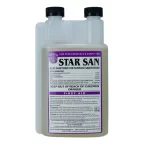 This week I take a look at sanitizers to use for beer brewing. In part 1 I presented an introduction to cleaning and sanitation and the importance of separately cleaning and sanitizing. Part 2 featured the most common cleaners used for beer brewing and their strengths and weaknesses. Sanitizing Sanitizing is the process of reducing […]
This week I take a look at sanitizers to use for beer brewing. In part 1 I presented an introduction to cleaning and sanitation and the importance of separately cleaning and sanitizing. Part 2 featured the most common cleaners used for beer brewing and their strengths and weaknesses. Sanitizing Sanitizing is the process of reducing […]  To the delight of many, Chuck Hahn has come out of retirement to start a brewery with his son, Scott.
To the delight of many, Chuck Hahn has come out of retirement to start a brewery with his son, Scott. Brandon Hernández combed the desert and laid out a stellar septet of breweries to visit in Las Vegas.
The post Vegas (Beer), Baby! appeared first on CraftBeer.com.
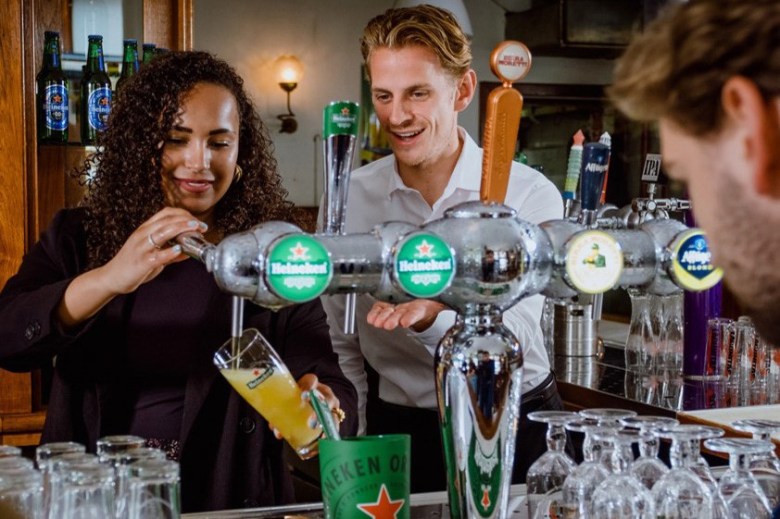 The national final, which will be held in Melbourne, celebrates the craftmanship of Australia’s top bartenders.
The national final, which will be held in Melbourne, celebrates the craftmanship of Australia’s top bartenders. The worlds of beer and chicken have been aligned for ages, but it wasn’t until 2021 that chimaek, a Korean portmanteau for fried chicken and light beers, was welcomed into the Oxford English Dictionary.
The post Bird + Brew: A Culinary Coupling appeared first on CraftBeer.com.
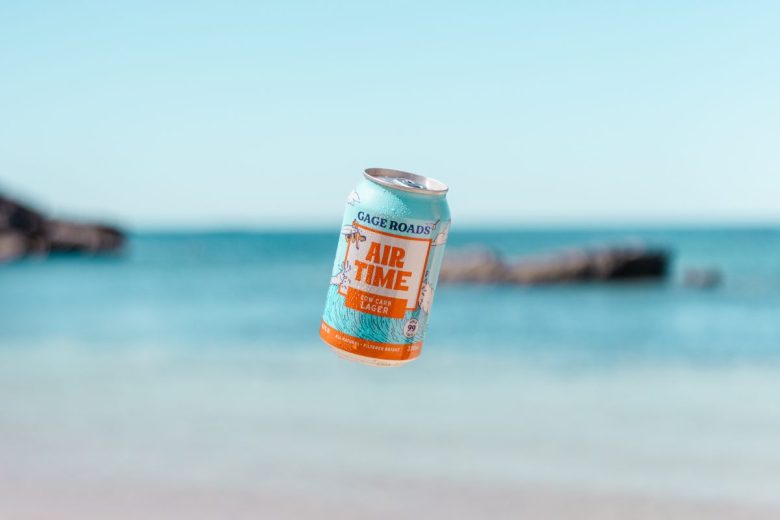 New low carb lagers and an Australian rollout of a popular non-alcoholic stout hit the shelves and beer taps.
New low carb lagers and an Australian rollout of a popular non-alcoholic stout hit the shelves and beer taps. Bière de garde is a malty style of beer that is undiscovered to many. Translated to "beer for keeping," the style was traditionally brewed in Northern France and is known for its malt-focused, toasty taste, and slight sweetness.
The post Bière de Garde: ‘A Breath of Fresh Air’ appeared first on CraftBeer.com.
Many breweries are adding on a whole new aspect of the business: a coffee roastery or shop sharing the same space as house-made beers.
The post Coffee & Beer: A Dynamic Duo appeared first on CraftBeer.com.
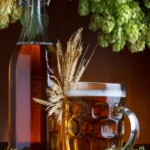 This week I take a look at the English hop group and what makes these hops unique for English ales. English Hop Growing The British hops group consists of hop varieties grown in Great Britain. These hops were first grown in the South-East counties of Suffolk, Kent, Surrey and Sussex. A short time later the […]
This week I take a look at the English hop group and what makes these hops unique for English ales. English Hop Growing The British hops group consists of hop varieties grown in Great Britain. These hops were first grown in the South-East counties of Suffolk, Kent, Surrey and Sussex. A short time later the […] The United States is home to more than 18,000 islands, and for travel lovers, many are worth adding to a list of must-see destinations. Luckily for craft beer enthusiasts, there are breweries located on several of these islands.
The post These 19 Breweries Are on U.S. Islands appeared first on CraftBeer.com.
Pairing produce with beer — with delicious results. A look at the glorious interplay between farmers market fare and craft beer.
The post A Great Beer for Greens appeared first on CraftBeer.com.
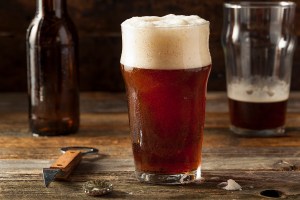
Join our HomeBrewer editor Jake Brandish as he gets into some fudgey, dark chocolatey, caramely goodness.
The post Recipe of the week: Scottish mild ale appeared first on Beer & Brewer.
Craft or not, our beer-drinking moms showed us from day one that beer isn’t just a man’s drink.
The post Cheers to Our Beer-Drinking Moms appeared first on CraftBeer.com.
The connection between the craft beer world and ski culture is undeniable. A good beer is often a perfect way to cap a day on the slopes.
The post A Beer & Ski Lover’s Guide appeared first on CraftBeer.com.
American craft breweries are known for their ability to strengthen community connections. These three breweries are case in point.
The post Beyond the Beer: Three Breweries Serving Their Communities appeared first on CraftBeer.com.
Many chefs are finding the sweet spot for beer and smoked food, managing the level of smoke intake for a more pleasurable meal.
The post Smoke and a Beer appeared first on CraftBeer.com.
As the craft industry’s demographics change, what can Beer City USA teach us about how history impacts beer today?
The post A Walk through History and Race in Beer City USA appeared first on CraftBeer.com.
 This week I look at the malting process, how we commonly group malts and the impacts for beer brewing. The Malting Process The malting process starts with raw barley grain, harvested from the field. The grain is dry when brought into the malt house, but the first step is to immerse the grain into water […]
This week I look at the malting process, how we commonly group malts and the impacts for beer brewing. The Malting Process The malting process starts with raw barley grain, harvested from the field. The grain is dry when brought into the malt house, but the first step is to immerse the grain into water […] Entrepreneurship and Equity in Brewing provides BIPOC and other underrepresented individuals with opportunities in the craft brewing business.
The post EEB: Opening Doors to a More Inclusive Brewing Community appeared first on CraftBeer.com.
Summer is here! Melissa Corbin serves up 11 craft-beer destinations and happenings, from the Pacific Northwest to the Deep South.
The post A Toast to Summer: Festivals, Patios, and Benefits appeared first on CraftBeer.com.
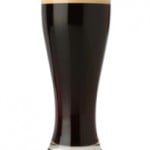 This week I take a look at the Dunkles Bock beer style from Northern Germany and examine its history and how to brew one. Dunkles Bock is a dark, strong, malty German lager. Dunkles Bock History Bock beer traces its history to Einbeck, a small German town between Kassel and Hannover. Brewing records mentioning bock […]
This week I take a look at the Dunkles Bock beer style from Northern Germany and examine its history and how to brew one. Dunkles Bock is a dark, strong, malty German lager. Dunkles Bock History Bock beer traces its history to Einbeck, a small German town between Kassel and Hannover. Brewing records mentioning bock […]